Meet an Educator is a monthly series by Early Bird, where we feature the work of educators across India who are actively spreading the joy of birds and nature. This month’s featured educator is Sarbani Nag, a nature educator from Kolkata. She runs ‘WISH Foundation’, an organisation that promotes citizen science.
Do tell us about yourself, where you are from, and your work
My name is Sarbani Nag and working in the wildlife field has been my passion since I was a child. I would like to recall an incident from childhood. At home, there was a beautiful bougainvillaea tree that was home to many caterpillars and one day it was uprooted out of fear. I was sad, but couldn’t stop it. As I watched the chopped branches, I saw a red secretion that looked like blood to me. I cried in pain and realised that I had a deep connection to the natural world around me. This experience intrigued me, and I began to study the creatures in my neighbourhood. I pursued a master’s degree in Zoology from the University of Calcutta and explored green islands in and around Kolkata, learning about the relationships that existed around me. Over time, I developed a love for amphibians and reptiles and received a small grant from ATREE to explore a sanctuary in East Sikkim focusing on herps.
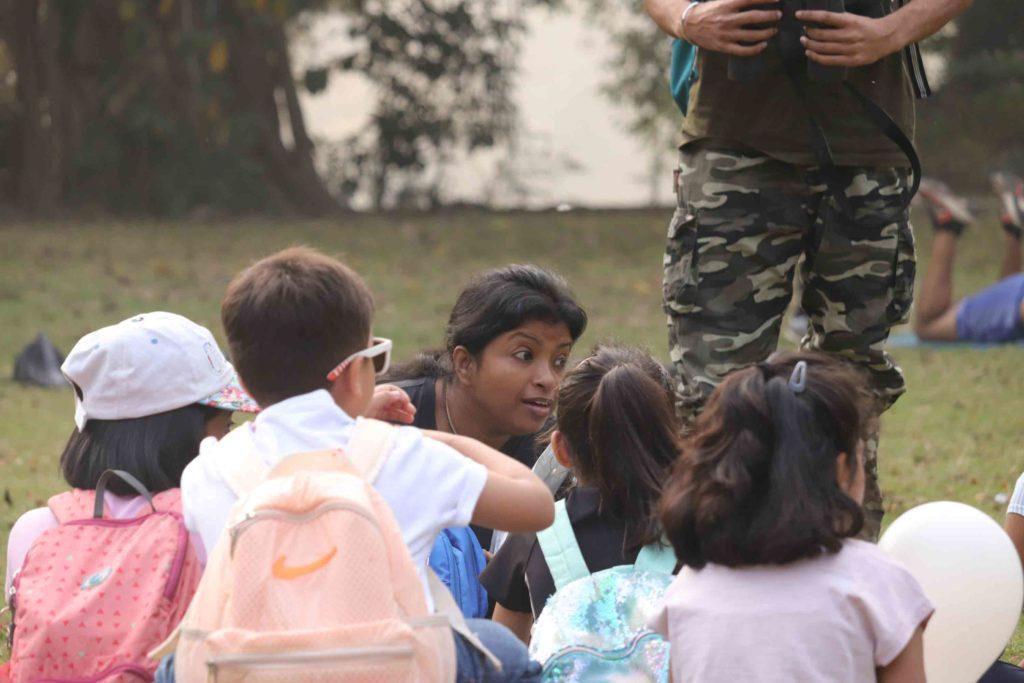
Later, I had the opportunity to work with the Himalayan Crocodile Salamander at WII and published my findings. However, I felt that in order to conserve these species, I needed to work with the local people. This realisation led me to form my own organisation, the WISH Foundation, which promotes citizen science. I found that birds were the most fascinating species to raise awareness about nature and natural processes. Since 2016, I’ve conducted several bird-watching programs in and around the city, which have been appreciated by participants. Later on, I became associated with SAVE THE FROGS! and registered the India chapter, SAVE THE FROGS! India. Through these two organizations, I’m raising awareness among the masses in different ways.
Are you a birder? What about bird watching excites you?
I’m a birder who prefers binoculars to observe the winged wonders. When I started learning the calls of birds, I discovered a world of wonder around me. I heard a Lesser Flameback calling from a place where very few trees are left to be pecked. I heard a Kingfisher, Coppersmith Barbets and Blue-throated Barbets calling from nearby! I didn’t know that they existed in the heart of a crowded city like Kolkata. I saw a Brown Shrike near a crowded market and was awestruck! A migratory bird! In a nearby wetland I found a Zitting Cisticola making a nest! I started learning deeply about birds and Kolkata has surprised me with its richness! This has always excited me and I’m still intrigued and I never get tired of visiting the same place again and again in different seasons.
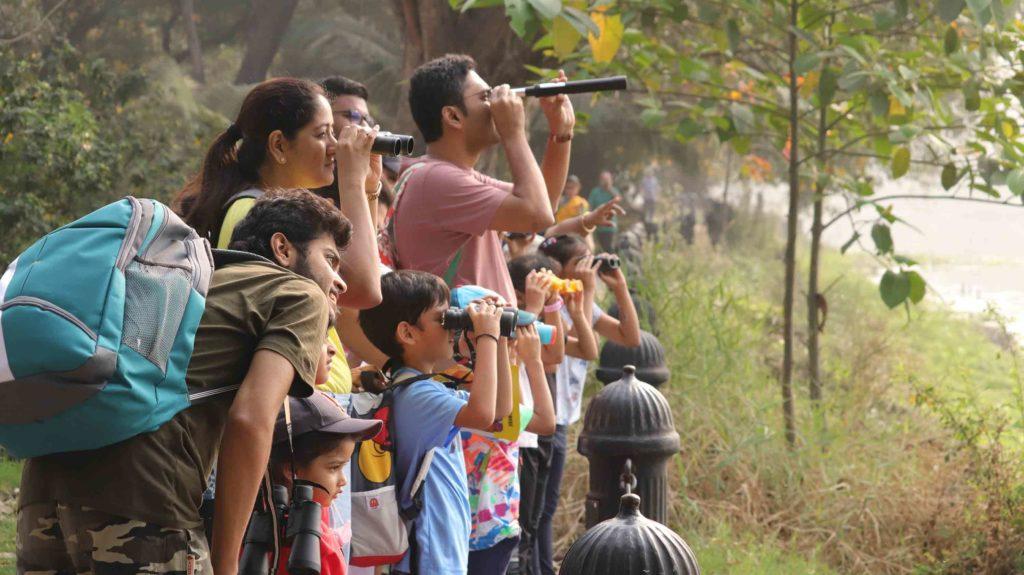
When and how did you get interested in bird/nature education?
Working with herps, particularly salamanders, made me realise that my findings needed to be communicated to the public in a way that would get them involved in saving whatever is left of our natural world. So, I began conducting awareness campaigns and nature trails, and the experience of interacting with people has been enriching. It has enhanced my communication skills and also the process of curation.
What do you hope to achieve through your education work?
I would like to reach out to the masses through my education work. There are so many people who do not have time to think about nature, who are disconnected from the root of life – nature, and who are stressed out. I would like to convey the message of how blessed we are, how beautiful our surroundings can be if the bees are not harmed, if the branches are not pruned in spring, if we can leave the leaves in our garden, if we can coexist!
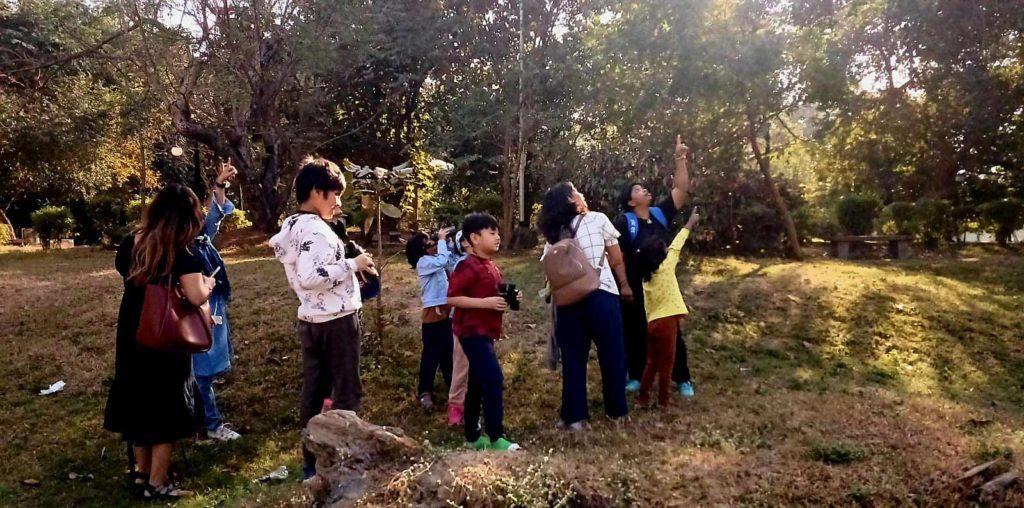
Why do you believe it is important for children to learn about birds or connect with nature?
Children are truly a beautiful gift to us, and they have the potential to become our guiding stars of the future. Children can accept and adapt to changes. Their excitement and wonder can intrigue adults. However, many children nowadays suffer from what is known as “nature deficit syndrome” due to being engrossed in the digital world and having lost connection with nature. Reconnecting with nature can lead to the development of children’s social, emotional, language, cognitive, physical and creative aspects. I plan my programs in such a way that children can touch the grass, soil, leaves and can feel solidarity with nature.
What tools or resources have helped you in teaching about birds? Can you describe an approach that has worked exceptionally well for you?
My observations since my days of exploring nature have helped me immensely in teaching about birds. The field guides and the book by Salim Ali, have helped me in explaining about birds. In addition, my interactions with people from different socio-economic backgrounds have allowed me to hone my skills as an educator. I always use a feedback form to perform better in my next session – the feedback has helped me. Planning activities for kids was a challenging task for me and the “Handbook for Bird Educators” helped me immensely in easing out the difficult aspects of it.
Have you encountered a significant challenge as a bird/nature educator, how did you overcome it?
Yes. I’m a nature educator by profession and funding is a challenge for me. I charge those who are able to pay for my services while offering free education to those who cannot afford it but want to explore nature. I try to strike a balance in this way but conducting nature education camps on my own is not sustainable on the long run. Another challenge I face is gathering participants. Often, people are too busy to attend follow-up sessions, without which it seems only like a fun one-day event. I’m yet to overcome these challenges.
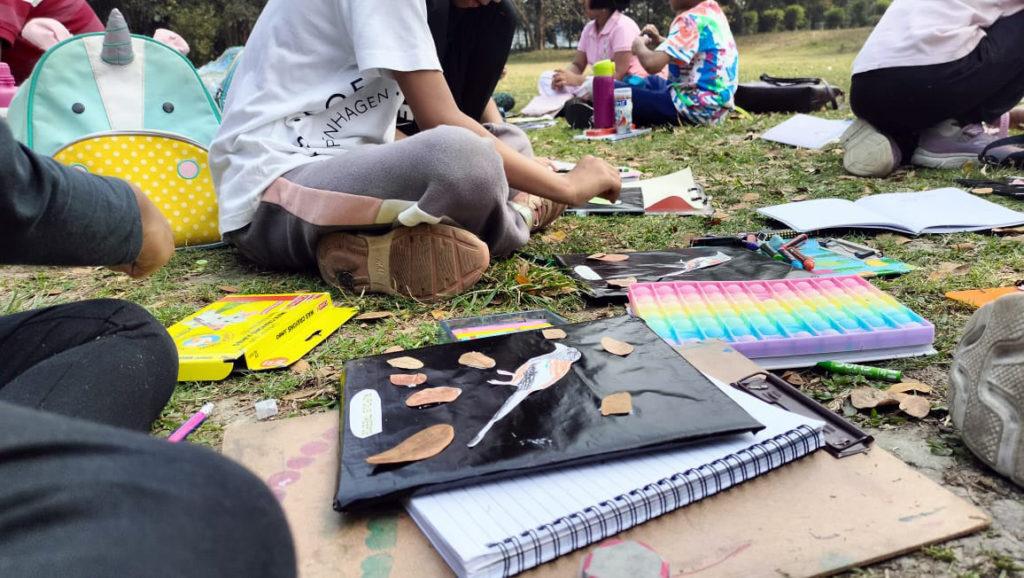
Do share any memorable moment or experience you have had in teaching kids about birds/nature. Can you recall any insightful instance that shaped your perspective?
I took a group of ten people to a bird sanctuary. The group had only one kid. While the adults were listening to me, the kid started taking notes. She wrote all the bird names, observations, names of insects we came across and the adults appreciated and took a photo of what she noted down.
Have you noticed any changes in your learners after they received exposure to birds and nature-based learning? If yes, what are they? If not, why do you think that is?
Some kids continue watching birds in their neighbourhood, they send photos to me or describe what they have seen for identification. Some mimic the calls and send them to me. One kid decided to study ecology at graduation level after accompanying me in a couple of nature walks.
What message would you have for your fellow educators, or somebody starting out in their nature education journey?
The job of an educator is challenging and sometimes frustrating too. But a continuous effort can always bring a positive change. So, we should continue on our journey, come what may. The beginner should interact with people with patience. Patience is the key to success.

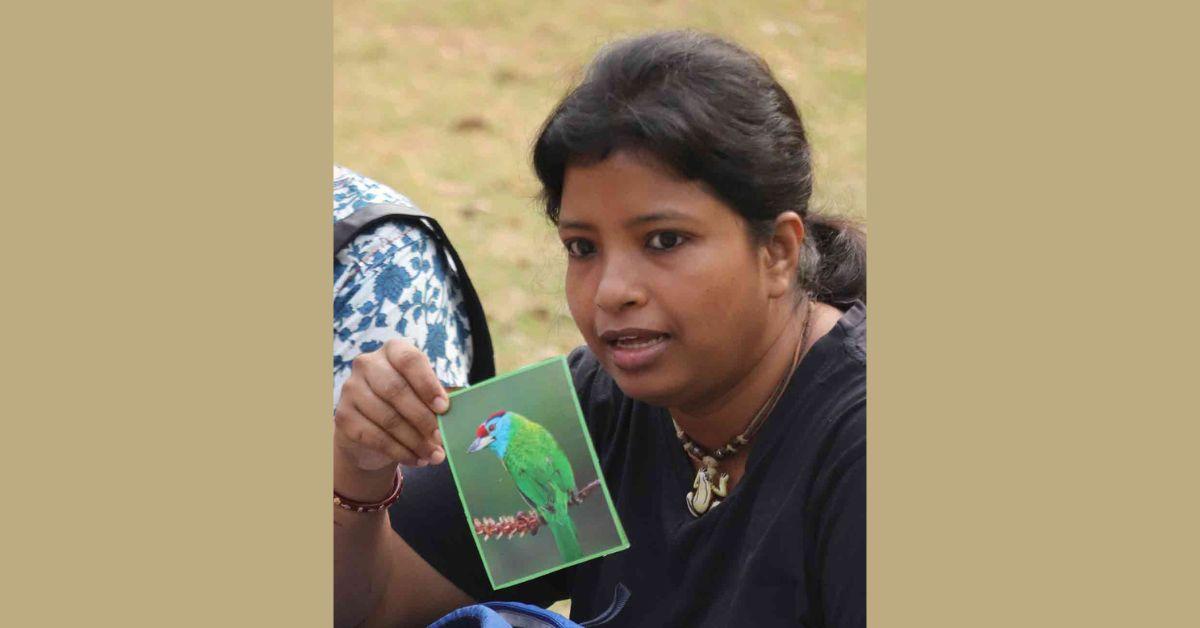
Great work by Sarbani and team. wish her more success and conservation works.